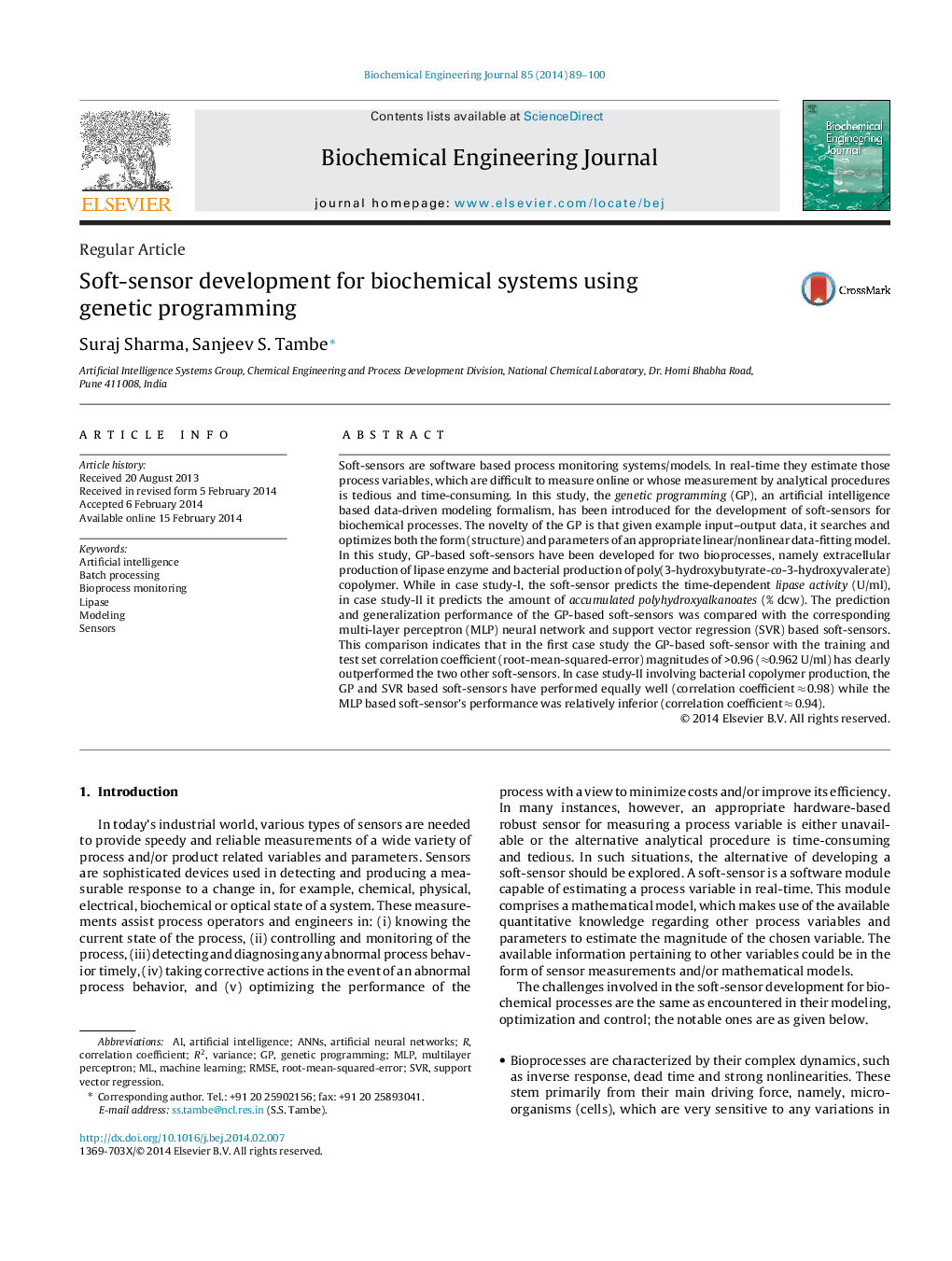| Article ID | Journal | Published Year | Pages | File Type |
|---|---|---|---|---|
| 6484061 | Biochemical Engineering Journal | 2014 | 12 Pages |
Abstract
Soft-sensors are software based process monitoring systems/models. In real-time they estimate those process variables, which are difficult to measure online or whose measurement by analytical procedures is tedious and time-consuming. In this study, the genetic programming (GP), an artificial intelligence based data-driven modeling formalism, has been introduced for the development of soft-sensors for biochemical processes. The novelty of the GP is that given example input-output data, it searches and optimizes both the form (structure) and parameters of an appropriate linear/nonlinear data-fitting model. In this study, GP-based soft-sensors have been developed for two bioprocesses, namely extracellular production of lipase enzyme and bacterial production of poly(3-hydroxybutyrate-co-3-hydroxyvalerate) copolymer. While in case study-I, the soft-sensor predicts the time-dependent lipase activity (U/ml), in case study-II it predicts the amount of accumulated polyhydroxyalkanoates (% dcw). The prediction and generalization performance of the GP-based soft-sensors was compared with the corresponding multi-layer perceptron (MLP) neural network and support vector regression (SVR) based soft-sensors. This comparison indicates that in the first case study the GP-based soft-sensor with the training and test set correlation coefficient (root-mean-squared-error) magnitudes of >0.96 (â0.962 U/ml) has clearly outperformed the two other soft-sensors. In case study-II involving bacterial copolymer production, the GP and SVR based soft-sensors have performed equally well (correlation coefficient â 0.98) while the MLP based soft-sensor's performance was relatively inferior (correlation coefficient â 0.94).
Keywords
Related Topics
Physical Sciences and Engineering
Chemical Engineering
Bioengineering
Authors
Suraj Sharma, Sanjeev S. Tambe,
